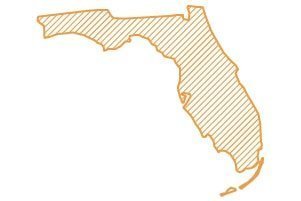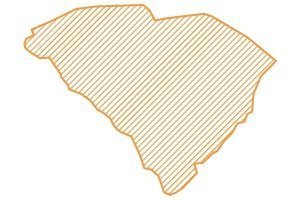North Carolina is the 9th most populated state in the country and employs over 20,000 social workers (1). Most social workers in the state, 14,350, are child, family, and school social workers. This includes social workers practicing within schools, the youth justice system, child protective services, and various non-profit organizations.
- Arizona State University - Online offers the respected CSWE-accredited Master of Social Work online. ASU Online knows today’s MSW students need remote learning options with no compromises. That’s why you’ll find the same professors, field work requirements, and internship placement assistance that ASU provides on campus. Visit School's Website
- edX partners with world-class universities to bring you online MSW programs that combine clinical training and flexibility. Choose from the following universities: University of Denver, Howard University, Simmons University and Syracuse University.
- Walden University offers Master of Social Work (MSW) - Advanced Standing (requires BSW). Visit School's Website
- University of Kentucky offers its Online Master of Social Work: Advanced Standing Program available. MSW program includes options for an advanced-standing program (30 credits) and a 60-credit regular standing program. Visit School's Website
- George Mason University - Throughout Mason’s online MSW program, you’ll build knowledge for evidence-based practice in classes led by practicing social workers. Visit School's Website
North Carolina is expected to see significant growth in social work jobs between 2022 and 2032. The highest expected increase is for health care social workers (16.6%), followed by mental health and substance abuse social workers (15.1%), child, family, and school social workers (14.2%), and all others (9.6%) (2). Regardless of the area of social work that piques your interest, there are opportunities for you in North Carolina.
Issues Facing Social Workers in North Carolina
North Carolina’s coastal location makes it susceptible to hurricanes and floods. The most recent was Hurricane Helene, which caused devastating destruction in the western part of the state (3). Social workers who specialize in crisis management are often called upon to assist after natural disasters and other emergencies.
North Carolina also has one of the largest rural populations in the country, with about 40% of its residents living in rural areas. Rural North Carolina struggles with numerous challenges, including lower rates of health insurance coverage, a high percentage of drug overdose mortalities, and a lack of adequate social services to respond to the growing needs of the community (4). Social workers who are passionate about addressing the unique social challenges prevalent within rural communities can make a meaningful impact in North Carolina.
Substance abuse is a particular concern in the state within both urban and rural spaces. In 2021, North Carolina was one of the 10 states with the highest rate of discharges from substance use treatment centers (5). According to the Centers for Disease Control and Prevention (CDC), in 2022, North Carolina also had the 12th highest drug overdose mortality rate in the country (6). Between 2021 and 2022, illicit drug use for individuals aged 12 and up ranged from 10.28% to 12.13% (7). Many of the MSW programs in North Carolina provide certificates or specializations in substance use disorder treatment.
North Carolina Social Work Schools and Masters in Social Work (MSW) Programs
If you would like to pursue your master’s degree in North Carolina, you have several great options to choose from. The University of North Carolina (UNC) at Chapel Hill’s School of Social Work is ranked number 4 in the nation, according to the U.S. News & World Report’s 2024 Best Social Work Schools ranking. Three other graduate schools in the state rank in the top 100, including UNC Charlotte’s Department of Social Work, NC State University’s Department of Social Work, and UNC Wilmington’s School of Social Work (8).
After you graduate with your Master’s in Social Work and start looking for a job, you’ll want to check out loan forgiveness programs for social workers. The National Health Service Corps loan forgiveness program (NHSC) rewards graduates who choose to work in a “Health Professional Shortage Area” (HPSA). There are also loan forgiveness programs specific to North Carolina, including the North Carolina State Loan Repayment Program (SLRP) and the NC Student Loan Program for Health, Science, and Mathematics. These programs usually require a specified number of years of serving a particular vulnerable population. Even if the work required is not what you intend to do long-term, it could be worth it as it provides you with more financial stability.
North Carolina MSW Programs
CSWE-Accredited Programs in NC
Regardless of the MSW program you choose in North Carolina, you can be confident that it is accredited by the Council of Social Work Education (CSWE). Some of the state’s most long-standing accredited universities, indicating well-established social work programs, include the University of North Carolina at Chapel Hill (1920) and East Carolina University (1974). It is critical to attend an accredited university if you plan to seek social work licensure after graduation.
Advanced Standing Programs
Advanced standing programs are important for MSW students who already have their Bachelor of Social Work (BSW) degree. They allow students to skip foundational social work courses, which enables them to obtain their MSW degree in half the time of a traditional program. This also means that the total cost is often considerably lower. All MSW programs in North Carolina have an advanced standing program.
When reviewing the North Carolina universities below, please note that the program length of time is for full-time students. Many of the universities offer part-time enrollment options, generally adding 1 to 2 years to the length of the program. The tuition numbers provided apply to full-time, on-campus students enrolled in the traditional programs. They do not include fees, which can sometimes double the total cost. Additionally, tuition may change every year, so it is always recommended to check directly with the university to determine the full cost of your attendance.
Appalachian State University
- Boone, NC
- 1-2 years
- Online + Campus
Location: Boone, NC
Modality: Online, On-campus
Credits required:
- Traditional Program: 60
- Advanced Standing: 33
Program Length:
- Traditional Program: 2 years
- Advanced Standing: 1 year
Cost:
- $2,616/semester (On-campus Residents)
- $10,952/semester(On-campus Non-residents)
Program Overview:
Appalachian State University’s traditional MSW program is only offered on-campus, while the advanced standing program can be completed online or on-campus. Students focus on micro or macro social work with concentrations in community and organizational practice or individuals and families.
East Carolina University
- Greenville, NC
- 1-2 years
- Online + Campus
Location: Greenville, NC
Modality: Online, On-campus
Credits required:
- Traditional Program: 60
- Advanced Standing: 42
Program Length:
- Traditional Program: 2 years
- Advanced Standing: 1 year
Cost:
- $2,374/semester + fees (Resident)
- $8,949/semester + fees (Non-resident)
Program Overview:
East Carolina University offers a full-time, on-campus MSW program and a part-time online program, both of which have traditional and advanced standing tracks. Their MSW program prepares students to work in rural or urban settings, focusing on generalist practice with a specialization in clinical-community social work practice.
Johnson C. Smith University
- Charlotte, NC
- 1-2 years
- Campus
Location: Charlotte, NC
Modality: On-campus
Credits required:
- Traditional Program: 60
- Advanced Standing: 39
Program Length:
- Traditional Program: 2 years
- Advanced Standing: 1 year
Cost: $10,200/semester + fees
Program Overview:
The MSW program at Johnson C. Smith University is designed for working students, with courses scheduled during the evenings and weekends. The program is focused on advanced generalist practice, preparing students to work at the micro, mezzo, or macro level.
North Carolina A&T State University & The University of North Carolina Greensboro
- Greensboro, NC
- 1-2 years
- Campus
Location: Greensboro, NC
Modality: On-campus
Credits required:
- Traditional Program: 60
- Advanced Standing: 42
Program Length:
- Traditional Program: 2 years
- Advanced Standing: 1 year
Cost:
- $3,688/semester + fees (UNC-Greensboro-Residents)
- $11,346/semester +fees (UNC Greensboro-Non-Residents)
- $421/credit hour + fees (NC A&T State University-Resident)
- $1,162/credit hour +fees (NC A&T State University-Non-resident)
Program Overview:
The joint MSW program between North Carolina A&T State University and the University of North Carolina Greensboro focuses on multicultural clinical practice. The program’s goal is to prepare students to engage in clinical social work with individuals, families, and small groups, as well as work with organizations and communities on issues of social justice and access to resources.
North Carolina Central University
- Durham, NC
- 1-2 years
- Campus
Location: Durham, NC
Modality: On-campus
Credits required:
- Traditional Program: 58
- Advanced Standing: 35
Program Length:
- Traditional Program: 2 years
- Advanced Standing: 1 year
Cost:
- $263/credit + fees (Residents)
- $1,003/credit + fees (Non-residents)
Program Overview:
The MSW program at North Carolina Central University offers several classes online and prepares students for advanced generalist practice with courses in both micro and macro social work practice. The field practicum provides a variety of placement sites, including within schools, the criminal justice system, and mental health facilities.
North Carolina State University
- Raleigh, NC
- 1-2 years
- Campus
Location: Raleigh, NC
Modality: On-campus
Credits required:
- Traditional Program: 60
- Advanced Standing: 39
Program Length:
- Traditional Program: 2 years
- Advanced Standing: 1 year
Cost:
- $557/credit + fees (Residents)
- $1,701/credit + fees (Non-residents)
Program Overview:
North Carolina State University’s MSW program is designed for advanced generalist practice with diverse populations. Through elective courses, students increase their knowledge and skills in specific areas such as school social work, behavioral health, and children, youth, and families.
University of North Carolina at Chapel Hill
- Chapel Hill, NC
- 1-2 years
- Online + Campus
Location: Chapel Hill, NC
Modality: Online, On-campus
Credits required:
- Traditional Program: 62
- Advanced Standing: 48
Program Length:
- Traditional Program: 2 years
- Advanced Standing: 1 year
Cost:
- $7,407/semester + fees (Residents)
- $16,861/semester + fees (Non-residents)
Program Overview:
The University of North Carolina at Chapel Hill’s MSW program, ranked 4th in the nation, allows students to decide between two concentrations, direct practice and community, management, and policy practice. The program can be completed online or on-campus, and students are able to enroll full- or part-time.
University of North Carolina at Charlotte
- Charlotte, NC
- 1-2 years
- Online + Campus
Location: Charlotte, NC
Modality: Online, On-campus
Credits required:
- Traditional Program: 60
- Advanced Standing: 39
Program Length:
- Traditional Program: 2 years
- Advanced Standing: 1 year
Cost:
- $2,574/semester + fees (Residents)
- $10,089/semester + fees (Non-residents)
Program Overview:
The MSW program at the University of North Carolina at Charlotte offers full- and part-time enrollment either online or on-campus. The program is designed to prepare students for advanced generalist practice with specialized courses in practice with individuals, groups, families, organizations, and communities.
University of North Carolina at Pembroke
- Pembroke, NC
- 1-2 years
- Online + Hybrid
Location: Pembroke, NC
Modality: Online, Hybrid
Credits required:
- Traditional Program: 50-62
- Advanced Standing: 35
Program Length:
- Traditional Program: 2 years
- Advanced Standing: 1 year
Cost:
- $2,140/semester + fees (Residents)
- $8,700/semester + fees (Non-residents)
Program Overview:
The University of North Carolina at Pembroke’s MSW program is geared towards students that need educational flexibility with online, hybrid, full- and part-time program options. There are also optional plans of study for school social work licensure or to specialize in substance use disorder treatment and delivery.
University of North Carolina at Wilmington
- Wilmington, NC
- 1-2 years
- Hybrid + Campus
Location: Wilmington, NC
Modality: Hybrid, On-campus
Credits required:
- Traditional Program: 61
- Advanced Standing: 37
Program Length:
- Traditional Program: 2 years
- Advanced Standing: 1 year
Cost:
- $2,639/semester + fees (Residents)
- $10,682/semester + fees (Non-residents)
Program Overview:
The MSW program at the University of North Carolina at Wilmington offers two tracks, advanced clinical practice or advanced macro practice. Students can participate in global social work through study-abroad opportunities in London, Ireland, and India. The program also offers certificates in addictions and veterinary social work.
Western Carolina University
- Portland, OR
- 2-3 years
- Hybrid + Campus
Location: Cullowhee & Asheville, NC
Modality: Hybrid, On-campus
Credits required:
- Traditional Program: 54-60
- Advanced Standing: 33
Program Length:
- Traditional Program: 2 years
- Advanced Standing: 10 months
Cost:
- $5,448/semester (Tuition & Fees, Residents)
- $10,807/semester (Tuition & Fees, Non-residents)
Program Overview:
The MSW program at Western Carolina University provides opportunities to specialize in a variety of social work areas through an Addiction Studies Program (ASP), Child Welfare Education Collaborative (CWEC), Culturally-based Native Health Certificate Program, Integrated Care Focus Area, and School Social Work Certificate. Students who decide to focus on integrated healthcare may be eligible for a $10,000 stipend.
Fayetteville State University
- Fayetteville, NC
- 1-2 years
- Campus
Location: Fayetteville, NC
Modality: On-campus
Credits required:
- Traditional Program: 61
- Advanced Standing: 35
Program Length:
- Traditional Program: 2 years
- Advanced Standing: 1 year
Cost:
- $1,719/semester + fees (Residents)
- $7,252/semester + fees (Non-residents)
Program Overview:
Fayetteville State University’s MSW program prepares students for advanced social work practice and leadership with focus areas in children, families, the military, mental health, and substance use. The program also offers a military behavioral health graduate certificate.
FAQs for Aspiring North Carolina Social Workers
1. What Can I Do With an MSW Degree in North Carolina?
As job opportunities increase for healthcare social workers in North Carolina–and their salaries averaging higher than other social work jobs–you might consider a career within the health sector, such as those with UNC Health or WakeMed Health & Hospitals. Additionally, several police departments in North Carolina have started hiring social workers to address calls involving mental health and substance abuse issues. And as North Carolina will most likely join the Social Work Licensure Compact in 2025, an MSW degree and license obtained in North Carolina should eventually allow you licensing reciprocity with other states in the compact.
2. Which North Carolina School of Social Work has the best MSW program?
The best social work program in North Carolina is located at the University of North Carolina at Chapel Hill as it is ranked 4th in the nation by the U.S. News and World Report (9). UNC Chapel Hill’s School of Social Work offers both on-campus and distance learning options and dual degree programs for both master’s and doctorate degrees. The school is home to the Jordan Institute for Families, founded by Michael Jordan, which applies interdisciplinary knowledge to a variety of social issues such as infant mortality, developmental disabilities, and human trafficking.
3. How much does an MSW in North Carolina cost?
There are many affordable options for MSW programs in North Carolina, particularly if you are a state resident. Total tuition costs for residents range from $6,876 to $40,800. Non-resident tuition prices range from $29,008 to $102,060. The least expensive MSW program in North Carolina for both residents and non-residents can be found at Fayetteville State University.
4. How much does a social worker in North Carolina make?
According to the U.S. Bureau of Labor Statistics, the mean salary for healthcare social workers is $64,590. Mental health and substance abuse social workers earn an average wage of $52,640, and child, family, and school social workers are compensated with a mean salary of $53,630 (10). All other social workers receive, on average, $68,270. Clinical social workers can often earn a higher salary, approaching or surpassing $100,000 (11).
5. What is the ROI of getting an MSW in North Carolina?
When you consider the average social worker salary in North Carolina ($70,910) (12), the average cost of a MSW program for state residents ($18,243), and the average cost of living ($43,959) (13), the Return on Investment (ROI) of getting an MSW in North Carolina looks fairly good. Of course, these numbers are different if you are not a state resident, choose an area of social work with a salary less than the average, or live in an urban versus rural community. It is important to review all factors that contribute to the aforementioned data points as you determine the best MSW program for you.
6. How long does it take to become a social worker in North Carolina?
Most full-time, traditional MSW programs require 2 years to obtain your MSW degree while advanced standing programs generally take 1 year. Several of the universities in North Carolina also offer part-time options, which can be finished in 3-4 years. Many of the traditional programs require that all students complete within 5 years of enrollment.
Licensure and Professional Development Resources
There are two possible certifications–Certified Master Social Worker (CMSW) or Certified Social Work Manager (CSWM)- and one license, Licensed Clinical Social Worker, that individuals with an MSW degree are eligible to acquire through examination.
The North Carolina chapter of the National Association of Social Work (NASW) is working to pass a bill in 2025 that would add North Carolina to the list of states that are part of the Social Work Licensure Compact. The Social Work Licensure Compact is an interstate licensure agreement that allows social workers from a participating state to serve clients in all other states that are part of the compact (14). It is looking probable that the bill will pass.
- North Carolina Social Work License
- National Association of Social Workers, North Carolina Chapter
- North Carolina Social Work Certification and Licensure Board
- North Carolina Society For Clinical Social Work
- North Carolina School Social Workers Association
References
- https://www.bls.gov/oes/2023/may/oes_nc.htm
- https://projectionscentral.org/longterm
- https://www.thecentersquare.com/north_carolina/article_b6a58ec4-be28-11ef-8fd0-e77e14bf99bc.html
- https://www.northcarolinahealthnews.org/2023/05/19/disparate-issues-shape-rural-health-in-nc/
- https://www.samhsa.gov/data/sites/default/files/reports/rpt42794/2021-teds-annual-report.pdf
- https://www.cdc.gov/nchs/pressroom/sosmap/drug_poisoning_mortality/drug_poisoning.htm
- https://otterhousewellness.com/blog/how-many-people-in-north-carolina-are-facing-an-addiction/
- https://www.usnews.com/best-graduate-schools/top-health-schools/social-work-rankings?_sort=rank-asc
- https://www.usnews.com/best-graduate-schools/top-health-schools/social-work-rankings?_sort=rank-asc
- https://www.bls.gov/oes/2023/may/oes_sc.htm
- https://www.ziprecruiter.com/Salaries/Clinical-Social-Worker-Salary–in-North-Carolina#:~:text=While%20ZipRecruiter%20is%20seeing%20salaries,$130%2C867%20annually%20in%20North%20Carolina.
- https://www.salary.com/research/salary/benchmark/social-worker-msw-salary/nc
- https://www.sofi.com/cost-of-living-in-north-carolina/
- https://www.naswnc.org/page/SWCompact

















